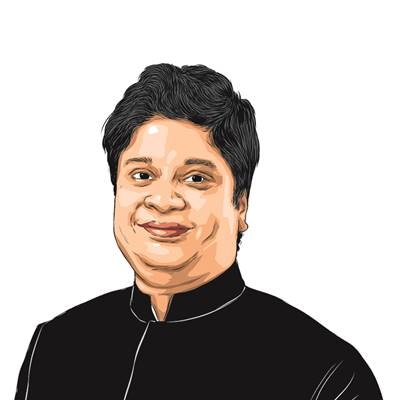Opinion Why it shouldnt matter
Post-liberalisation India has a bigger stake in the future than in the past
The dispute over the land where the Babri Masjid once stood goes back almost 500 years. Yet,it only became a potent and divisive political issue in the second half of the 80s. It could potentially have become a political hot potato in independent India as early as 1949 when some Hindu idols were placed inside the mosque. Incidentally,that is also when the courts were first petitioned on the matter. But the issue did not get political traction,despite the then very recent history of violent communal discord that had marked the partition. Why?
The most likely explanation is that the mood of the nation at that time was not oriented towards settling historical scores. Having just overcome its biggest grievance,colonialism,the nation,led by a very credible set of political leaders,was keen to look ahead towards a new and prosperous future,than to a traumatic recent past. Jawaharlal Nehru,the pre-eminent political figure of that time believed that rapid industrialisation would help Indians get over narrow parochial considerations like religion,caste and region.
He might have been right if he had chosen to focus on economic growth as the end goal rather than state-led industrialisation. Because as it turned out,the state-led industrialisation strategy (later converted to a more virulent socialism by Indira Gandhi) failed miserably to generate sufficient resources and opportunities to deliver the prosperity that was promised to all in 1947.
The failed promise was evident by the 80s which was perhaps the decade when the politics of grievance firmly took centrestage. It wasnt as if grievances were confined to any particular socio-economic group,but political mobilisation was always going to be easier around familiar parochial interests,which then clashed with one another. So when lower castes mobilised,there was an upper-caste backlash. If Muslim groups mobilised (as in Shah Bano),there was a Hindu nationalist backlash. In fact,the Hindu nationalist movement that chose the Babri Masjid dispute in Ayodhya as its political symbol was driven more broadly by a grievance-based backlash against lower castes and minorities,who certain groups (mostly upper-caste Hindus in north India) believed were being appeased in perpetuity by the secular elite.
An important point to note here is that the root of this conflict was the battle for what were,at least compared to today,rather limited resources of the state: the Hindu rate of growth could have only generated so much over three decades. And because markets were tightly reined in,there were even more limited resources outside the domain of the state. It is precisely this bleak,cynical scenario that led to an outpouring of rage on the Ayodhya issue and on the Mandal Commission,perhaps the two most defining features of a grievance-dominated politics in the late 80s and early 90s.
Interestingly though,almost exactly at the peak of grievance-based politics in the early 90s,another radical force was being unleashed that would eventually help the country break out of that vicious political cycle: economic liberalisation. What has happened to the nation in the 19 years since is a return to a mood similar to the one that characterised the early post-independence period,a mood dominated by optimism about a new,prosperous future. It is this mood that now dominates the thinking of young India people of your correspondents generation where settling old scores or revisiting history isnt a priority at all.
Two decades of free markets and high growth have changed attitudes quite fundamentally. For a start,a significant part of the population now accesses resources and opportunities from the non-government,private sector. That reduces the competition for access to the states resources. Of course,there is still a section of the population,namely the poor,who are completely dependent on the state for resources. But two decades of high growth have ensured that the government has more resources to redistribute to this section of the population without the need for conflict.
Markets are also very different from the state in the sense that they are blind to differences between people on the basis of caste,religion and region. Ability and merit tend to be the main criteria for getting ahead,and most people perceive a certain fairness in that. In sharp contrast,politics and the state,even in 2010,are driven by parochial considerations like caste,religion and region. It isnt therefore surprising that many young Indians have a disdain for politics which never seems to be forward looking enough.
It is,of course,too early to say how politics,so easily cynical,will react to the Allahabad high court judgment on Ayodhya. But it would be safe to say that the overwhelming mood of the nation is to look ahead to the future,not the past.
dhiraj.nayyar@expressindia.com


